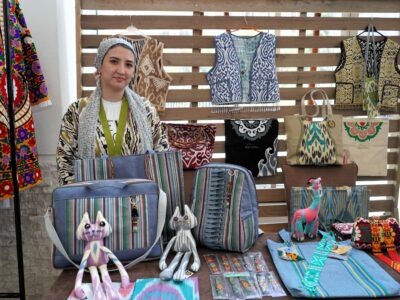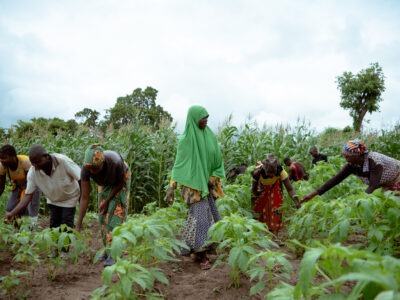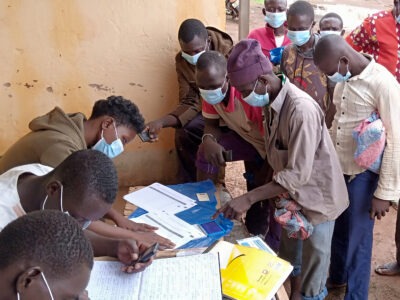Although women do most of the agricultural work worldwide, they own very little of the land they farm. In Africa, women own less than 2 percent of all land, according to some estimates.
Yet, according to the Food and Agriculture Organization of the U.N., if women had access to the same resources as men, agricultural yields could grow enough to lift up to 150 million people out of hunger.
The three regions of northern Ghana follow a predominately patrilineal system: men inherit property, including land, and women’s access to it is tied to their husbands’ lineage. Women often receive pieces of land that are smaller, less fertile, and far from their homes, which makes it difficult for them to both farm and care for their families. Forced to choose between child care and farming, women often produce lower crop yields.
Through USAID’s Agricultural Development and Value Chain Enhancement (ADVANCE) project and the subsequent ADVANCE II, ACDI/VOCA works with farming communities to address this inequity and improve overall productivity.
ADVANCE Increases Women’s Access to Land in Ghana
In 2012, the ADVANCE project began working in the Gindabour community in the Sawla-Tuna-Kalba district in northern Ghana. ADVANCE collaborated with John Mulnye, a nucleus farmer who works with 650 female and 150 male smallholder farmers.
From the start of the project’s collaboration with Mulnye, ACDI/VOCA made it clear, through project gender sensitization activities, that ADVANCE aimed to create equitable and sustainable opportunities for both women and men.
The ADVANCE project and Mulnye established a demonstration plot in the community with private sector support to introduce technology to 75 of the smallholder farmers and train them on good agriculture practices.
Fifteen women who participated in the demonstrations adopted the practices and applied them to their farms. As a result, their yields improved from an average of 0.4 metric tons per acre to an average of 1.4 metric tons per acre.
More Equity Means Greater Family Well-Being
Mulnye was instrumental in showing the importance of women’s access to productive land close to their homes. As a result of the above interventions, 15 women smallholders have acquired access to 21 acres of productive land closer to their homes and are adopting good agricultural practices.
The project will continue to sensitize and pursue equitable access to resources, especially for women smallholders, to improve their incomes and the well-being of their families.
Pictured at top left: John Mulnye explaining the row-spacing method to women outgrowers. Photo courtesy of Lauren Bell, Peace Corps Volunteer with ADVANCE II, Tamale office, Ghana.








